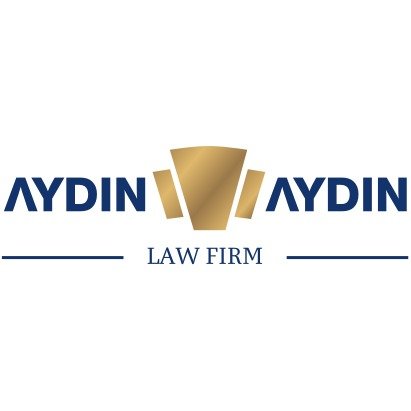Best Structured Finance Lawyers in Turkey
Share your needs with us, get contacted by law firms.
Free. Takes 2 min.
Or refine your search by selecting a city:
List of the best lawyers in Turkey
Legal guides written by Tekin Law Firm:
- Arbitration in Turkey
About Structured Finance Law in Turkey
Structured finance is a specialized area of financial law that involves complex financial instruments and arrangements, often beyond the scope of traditional banking products. In Turkey, structured finance typically covers securitization, asset-backed securities, project finance, and various forms of syndicated and cross-border lending frameworks. The Turkish legal environment for structured finance has matured as global and local investors have sought sophisticated mechanisms to finance large projects and manage risks. Regulatory authorities such as the Capital Markets Board and Banking Regulation and Supervision Agency play significant roles in overseeing and regulating structured finance transactions in Turkey.
Why You May Need a Lawyer
Structured finance transactions can be intricate and subject to numerous legal, regulatory, and tax considerations. Engaging a lawyer is essential in the following situations:
- Designing and negotiating asset-backed securities or securitization structures
- Complying with regulatory requirements from Turkish authorities
- Structuring cross-border project financings or syndicated loans
- Understanding tax implications of structured financial products
- Resolving disputes related to defaults or contractual terms in structured finance deals
- Mitigating risks associated with insolvency, restructuring, or bankruptcy
- Ensuring due diligence in the purchase or sale of receivables and assets
Since errors or omissions in these complex transactions can have serious legal and financial consequences, consulting a structured finance lawyer is highly recommended.
Local Laws Overview
Structured finance in Turkey is shaped by various statutes, regulations, and guidelines issued by regulatory authorities. Key aspects include:
- Capital Markets Law: Securitization activities are mainly governed by the Capital Markets Law and related Communiqués issued by the Capital Markets Board. These detail the procedures for creating, registering, and managing asset-backed securities and mortgage-backed securities.
- Banking Law: The Banking Law regulates banks’ participation in structured finance products and their risk exposures.
- Project Finance & PPP: Major infrastructure and energy projects often use structured finance through public-private partnership (PPP) models, which require compliance with specific sector regulations.
- Tax Regulations: Tax treatment for structured finance vehicles, such as Special Purpose Vehicles (SPVs), needs careful planning due to implications on VAT, stamp duty, and corporate tax.
- Foreign Currency Regulations: Transactions involving foreign investors or foreign currency lending must comply with foreign exchange legislation and Central Bank requirements.
- Insolvency and Collateralization: Laws on bankruptcy, enforcement, and moveable/immoveable asset pledges are critical when structuring deals to ensure enforceability in cases of default.
Frequently Asked Questions
What is structured finance?
Structured finance refers to advanced financial instruments or transactions designed to facilitate financing, risk management, or investment using securitization, asset pooling, or derivative products.
Is securitization allowed in Turkey?
Yes, securitization is permitted and regulated under Turkish law. Asset-backed and mortgage-backed securities are commonly issued with oversight from the Capital Markets Board.
Who regulates structured finance in Turkey?
Key regulators include the Capital Markets Board, Banking Regulation and Supervision Agency, and, for currency controls and foreign transactions, the Central Bank of Turkey.
What is a Special Purpose Vehicle (SPV) and why is it used?
An SPV is a separate legal entity created primarily to isolate financial risk. In structured finance, it is commonly used to hold assets, issue securities, and shield sponsors from risks associated with the financed project.
Are structured finance products available to all types of companies?
Structured finance products are generally available to entities meeting certain regulatory criteria, often larger corporates, financial institutions, or entities involved in large-scale projects.
What are the main risks of structured finance?
Risks include credit risk, market risk, legal and regulatory compliance issues, tax uncertainties, and complexities in enforcing collateral rights or cash flow waterfalls.
Can foreign investors participate in Turkish structured finance deals?
Yes, foreign investors can participate, subject to foreign exchange legislation, local regulations, and, at times, sectoral limitations.
What is the role of collateral in structured finance transactions?
Collateral, such as receivables, real estate, or project assets, enhances the security of a structured finance transaction and is often required by investors and lenders in Turkey.
How is the tax treatment of structured finance vehicles in Turkey?
The tax treatment depends on the structure and purpose of the vehicle. SPVs and securitization funds may benefit from specific exemptions but are subject to VAT, stamp duty, or corporate taxes depending on the transaction.
What should I consider before entering a structured finance transaction in Turkey?
Key considerations include legal compliance, risk allocation, regulatory approvals, due diligence on counterparties, collateral enforceability, and engaging legal and financial advisors experienced in Turkish structured finance.
Additional Resources
If you are seeking more information or guidance on structured finance in Turkey, consider the following resources:
- The Capital Markets Board of Turkey (Sermaye Piyasası Kurulu)
- Banking Regulation and Supervision Agency (Bankacılık Düzenleme ve Denetleme Kurumu)
- Central Bank of Turkey (Türkiye Cumhuriyet Merkez Bankası)
- Turkish Ministry of Treasury and Finance
- Turkish Banks Association
- Reputable law firms with financial law departments specializing in structured finance
- Professional publications and journals on Turkish finance and banking law
Next Steps
If you require legal assistance in structured finance, consider the following steps to proceed confidently:
- Identify and document the nature of your intended structured finance transaction or issue.
- Research law firms or legal advisors in Turkey with proven experience in structured finance.
- Arrange a consultation to discuss your situation, objectives, and concerns.
- Prepare relevant corporate and financial documents for review by your advisor.
- Discuss fee structures and engagement terms before commencing formal legal services.
- Request ongoing legal support throughout the planning, negotiation, and execution of your transaction to ensure compliance and risk mitigation.
Seeking early legal advice can help you avoid costly mistakes, ensure regulatory compliance, and optimize the outcome of your structured finance arrangements in Turkey.
Lawzana helps you find the best lawyers and law firms in Turkey through a curated and pre-screened list of qualified legal professionals. Our platform offers rankings and detailed profiles of attorneys and law firms, allowing you to compare based on practice areas, including Structured Finance, experience, and client feedback.
Each profile includes a description of the firm's areas of practice, client reviews, team members and partners, year of establishment, spoken languages, office locations, contact information, social media presence, and any published articles or resources. Most firms on our platform speak English and are experienced in both local and international legal matters.
Get a quote from top-rated law firms in Turkey — quickly, securely, and without unnecessary hassle.
Disclaimer:
The information provided on this page is for general informational purposes only and does not constitute legal advice. While we strive to ensure the accuracy and relevance of the content, legal information may change over time, and interpretations of the law can vary. You should always consult with a qualified legal professional for advice specific to your situation.
We disclaim all liability for actions taken or not taken based on the content of this page. If you believe any information is incorrect or outdated, please contact us, and we will review and update it where appropriate.
Browse structured finance law firms by city in Turkey
Refine your search by selecting a city.
















